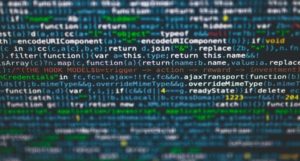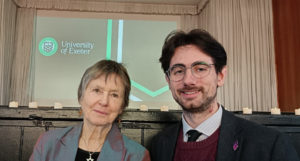Citizens’ panels help young people with SEND to make their voices heard on the policies that affect their lives, study shows

The course was designed in response to growing concerns about the mental health and well-being of young people
A new study shows participating in a citizens’ panel can help young people with special educational needs/disabilities to produce new policy ideas about school inclusion.
The first study of its kind also provides evidence of how public dialogue processes, which also include citizens’ assemblies and citizens’ juries, can be successfully modified to ensure young people at risk of marginalisation can fully participate in important discussions about the policies that affect their lives.
Experts first worked with six young people with SEN/D and their parents/carers to shape how the citizens’ panel should work.
A total of 28 people then took part in the citizens’ panel – the six young people plus four young people without SEN/D, 13 parents/carers, and five education professionals.
Working together, the panel produced distinctive ideas about how to make schools more inclusive schools for everyone.
Professor Brahm Norwich, from the University of Exeter, who co-led the project, said: “We have shown ideas about transformational change can be developed in ways that enable young people with SEN/D to participate and have their voices heard.
“We have found evidence that a citizens’ panel can produce elaborate and relatable policy ideas about inclusion in schools. There is scope for this approach to be used in schools, local networks, and nationally. This could help improve the education system.
“Working in this way could also help teachers actively prepare all children and young people to participate in democratic processes.”
The findings are timely, given not only the new Labour government’s interest in using public dialogue to engage people in the political process, and involve communities in programmes of reform, but also its aim to make inclusion more central to school inspection.
The young people with SEN/D who took part in the project were consulted on how to make the mini-public events as inclusive, as engaging, and as productive as possible.
The project ran over the 2023/23 academic year, involving participants drawn from Hampshire. The research team worked with public dialogue experts, Involve and the Sortition Foundation, to select participants and deliver the citizens’ panel events.
In response to the question of ‘what is school for’, the panel emphasised the role of personal and social skills rather than just knowledge skills and examination results.
On the challenges associated with making schools more inclusive, they emphasised the improvement of current spaces in schools, and the importance of having areas which were less busy and easier to move through. They also proposed changes to canteens, the learning equipment provided, and the use and design of technology.
Participants mentioned the need for teachers to have their training needs met and the importance of job satisfaction, wellbeing and working in satisfactory and flexible conditions.
Participants said ability setting was ‘not working’, stigmatising and was associated with poorer quality learning opportunities. Flexible grouping was suggested as an alternative, allowing pupils with SEN to choose the level of their own learning and to avoid them ‘standing out’.
Dr Rob Webster from the University of Greenwich, who co-led the project, said: “Participants felt the citizens’ panel was successful in meaningfully including young people with SEN/D in a deliberative public dialogue. They described it being a positive and worthwhile experience.
“The format provided a safe space for respectful and constructive dialogue, in which participants ‘feel safe to say what I was thinking’ and to ‘agree to disagree’ with one another.
“Panellists valued the opportunity to talk with, listen to and learn from people that they encountered infrequently in their everyday lives, reporting that it helped them develop empathy and obtain new insights.”
Some of the young people attended the same school. The parents/carers of children without SEN/D reported how their children had, because of this project, begun to view their peers with SEN/D in a new and positive light. The citizens’ panel project was funded by the UKRI-RSA Rethinking Public Dialogue programme



